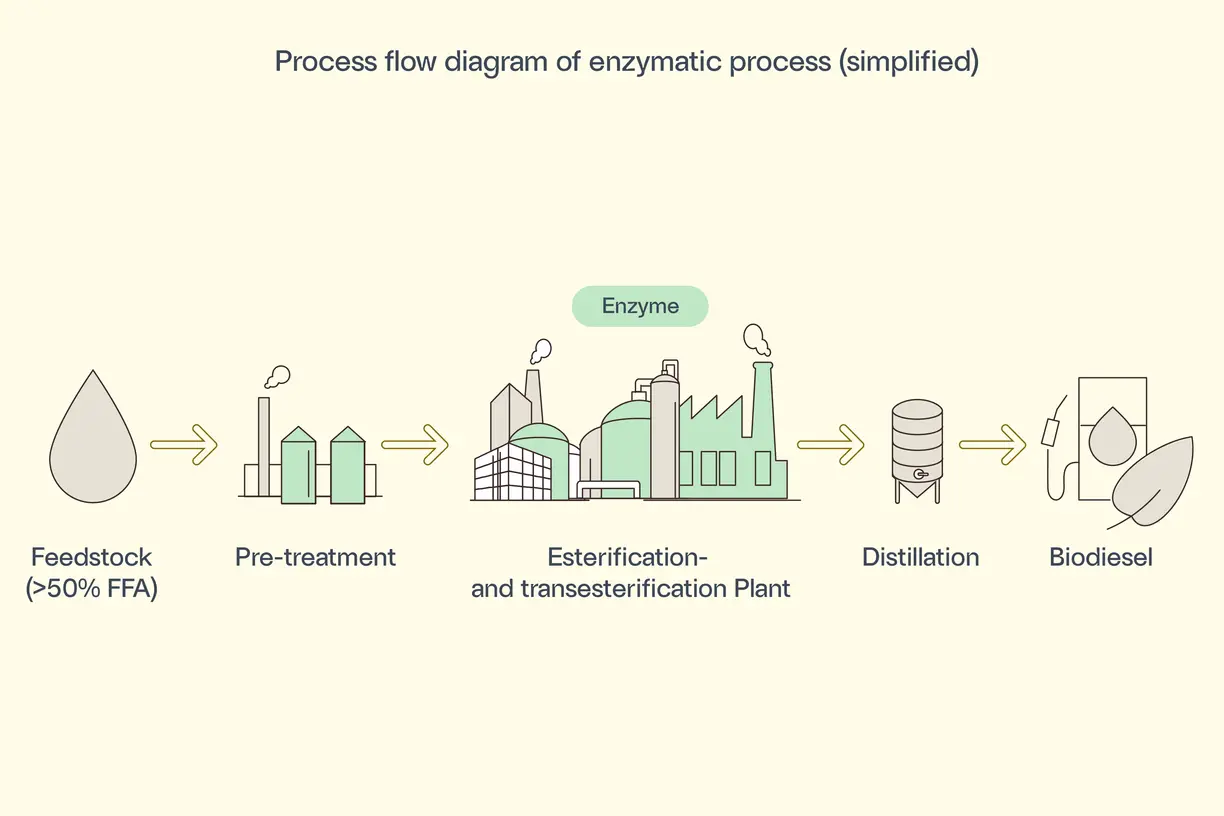
Biodiesel from high-FFA feedstocks
Generate more profit by processing your high-FFA feedstocks at the lowest possible cost
Like other biodiesel producers striving to comply with the RED II directive in Europe, you’re looking to build plants that process large volumes of varied feedstocks. To accomplish this task, some producers are investing in technological solutions for processing multiple feedstocks—technology that costs upward of €100million. The justification for such a sizeable OPEX expense is the lower OPEX enabled by the use of a non-proprietary, cheap catalyst.
There is, however, an alternative. Large amounts of high-FFA feedstocks can be processed using enzymatic technology. This is a solution that can be implemented by retrofitting an existing plant currently operating with virgin vegetable oils. This is a low-CAPEX solution that also has an attractive OPEX.
Enzymatic esterification and transesterification with Eversa® Transform 2.0 and appropriate pre- and post-treatment is well-proven to convert high-FFA feedstock, such as palm oil mill effluent (>50% FFA) to in-spec biodiesel.

The solution footprint includes pretreatment (decanter, degumming), CSTR reactors (300 TPD), and post-treatment (polishing, distillation). Once up and running, the solution delivers:
-
Up to €15 million more profit per year from high FFA feedstocks
-
One-sixth CAPEX versus alternative technologies
-
Retrofit of existing assets for as low as €5 million to get started
With our FlexFit® process, Novonesis engineers can help you identify the best ways for your plant to maximize profits and transition to feedstock flexibility with our Eversa® Transform 2.0 biocatalyst.